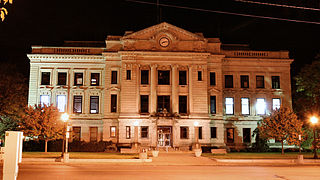Auburn Essential Services; A Workhorse in Northeast Indiana Saves Jobs, Serves Public
In 1985, Auburn Electric became one of the first communities in the midwest to deploy fiber. At the time, the purpose was to improve electric and voice systems substation communications within the municipal utility. That investment laid the foundation for a municipal network that now encourages economic development and saves public dollars while enhancing services.
Auburn expanded its fiber network beyond electric systems in 1998. The utility began using the network to serve city and county government operations. It is not well known, but Auburn offered gigabit service to its public sector customers way back in 1998.
The benefits from the deployment prompted community leaders to develop an Information Technology Master Plan in 1998 that would answer the question of what other ways the fiber could serve the community? As part of the Master Plan, Auburn leaders collected information from other communities that were capitalizing on their own local fiber. While Auburn made no immediate plans, they kept an open mind, waiting until the time was right.
In 2004, Cooper Tire and Rubber (now Cooper Standard) was about to be sold from its parent company. The $1.6 billion auto component manufacturer needed a data center but bandwidth was insufficient and inconsistent in Auburn. Cooper considered leaving because the incumbents, Mediacom and AT&T, could not or would not provide the broadband capacity the company needed. If Cooper left town, an estimated $7 million in wages and benefits from 75 high-paying tech jobs would also leave. At the time, Auburn was home to 12,500 people.

According to Schweitzer, the City tried to persuade the telephone company to find a solution with Cooper but the two could not reach an agreement. Rather than lose Cooper, the City of Auburn stepped in to fill the connectivity gap in 2005.
In a 2007 interview with Public Power magazine, Schweitzer noted advantages in Auburn that facilitated the project:


